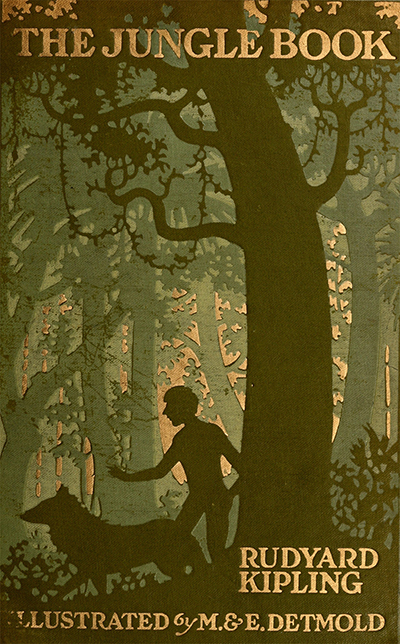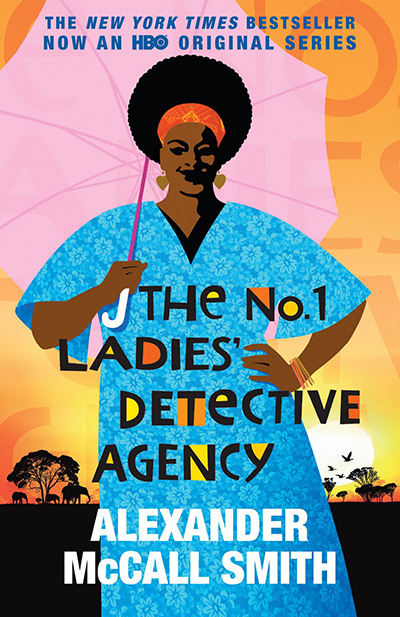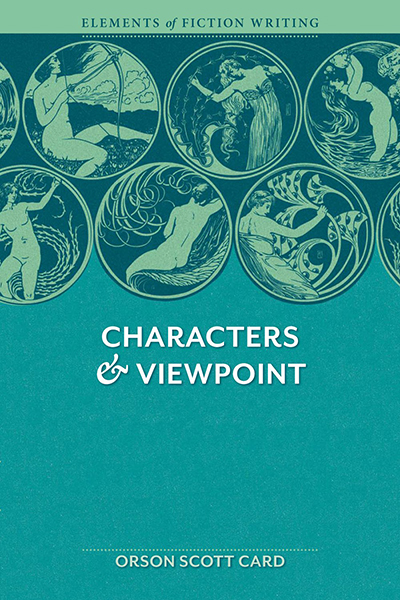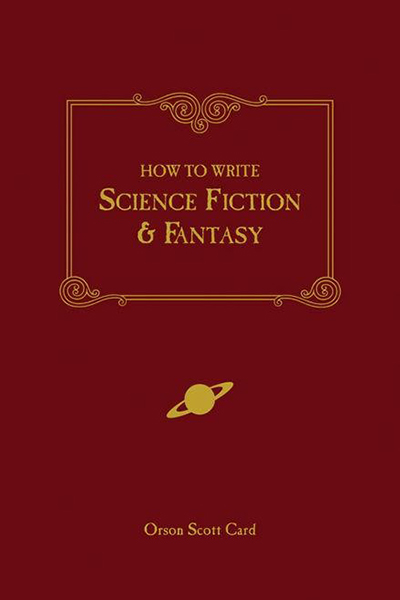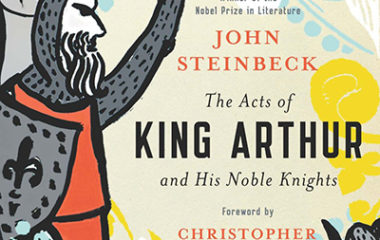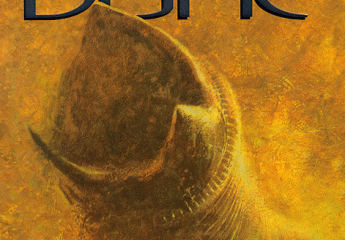It’s time to add more books to your to-read pile with Christopher’s latest batch of recommendations, along with his thoughts on each one.
The Jungle Book – Rudyard Kipling
Synopsis:
The Jungle Books can be regarded as classic stories told by an adult to children. But they also constitute a complex literary work of art in which the whole of Kipling’s philosophy of life is expressed in miniature. They are best known for the ‘Mowgli’ stories; the tale of a baby abandoned and brought up by wolves, educated in the ways and secrets of the jungle by Kaa the python, Baloo the bear, and Bagheera the black panther. The stories, a mixture of fantasy, myth, and magic, are underpinned by Kipling’s abiding preoccupation with the theme of self-discovery, and the nature of the ‘Law’.
“The stories in The Jungle Book are fantasy, but that in no way detracts from the truth of Kipling’s observations concerning the traits and habits of various animals, the behavior of humans, and the mystery, splendor, and danger of the outdoors. Indeed, one of Kipling’s greatest strengths is that he did not ignore the savage reality of most animals’ lives in preference for a warm, fuzzy, romantic view of nature. These are animals who live with the constant threat of death, and, if they are a predator, can only survive by eating other creatures. Kipling doesn’t attempt to hide or soften this reality. And his writing is all the more powerful as a result.”
~ Christopher Paolini
The No. 1 Ladies’ Detective Agency – Alexander McCall Smith
Synopsis:
This first novel in Alexander McCall Smith’s widely acclaimed The No. 1 Ladies Detective Agency series tells the story of the delightfully cunning and enormously engaging Precious Ramotswe, who is drawn to her profession to “help people with problems in their lives.” Immediately upon setting up shop in a small storefront in Gaborone, she is hired to track down a missing husband, uncover a con man, and follow a wayward daughter. But the case that tugs at her heart, and lands her in danger, is a missing eleven-year-old boy, who may have been snatched by witchdoctors.
“These are light, comic books sprinkled with a generous amount of hard-won wisdom. They always make me smile.”
~ Christopher Paolini
David Copperfield – Charles Dickens
Synopsis:
David Copperfield is the story of a young man’s adventures on his journey from an unhappy & impoverished childhood to the discovery of his vocation as a successful novelist. Among the gloriously vivid cast of characters he encounters are his tyrannical stepfather, Mr Murdstone; his formidable aunt, Betsey Trotwood; the eternally humble yet treacherous Uriah Heep; frivolous, enchanting Dora; & the magnificently impecunious Micawber, one of literature’s great comic creations.
In David Copperfield—the novel he described as his “favorite child”—Dickens drew revealingly on his own experiences to create one of his most exuberant & enduringly popular works, filled with tragedy & comedy in equal measure.
“David Copperfield is a superbly written horror novel. But it is also enormously funny, and filled with Dickens’ trademark wit and facility. Moreover, it contains the single best piece of financial advice in history, delivered courtesy of Mr. Micawber, who observes, “. . . that if a man had twenty pounds a-year for his income, and spent nineteen pounds nineteen shillings and sixpence, he would be happy, but that if he spent twenty pounds one he would be miserable.” This again reflects Dickens’ own life, as it is a close paraphrase of something his father told him.”
~ Christopher Paolini
Characters and Viewpoint – Orson Scott Card
Synopsis:
This book is a set of tools: literary crowbars, chisels, mallets, pliers and tongs. Use them to pry, chip, yank and sift good characters out of the place where they live in your imagination.
Award-winning author Orson Scott Card explains in depth the techniques of inventing, developing and presenting characters, plus handling viewpoint in novels and short stories. With specific examples, he spells out your narrative options—the choices you’ll make in creating fictional people so “real” that readers will feel they know them like members of their own families.
You’ll learn how to:
- Draw characters from a variety of sources
- Make characters show who they are by the things they do and say, and by their individual “style”
- Develop characters readers will love—or love to hate
- Distinguish among major characters, minor characters and walk-ons, and develop each appropriately
- Choose the most effective viewpoint to reveal the characters and move the storytelling
- Decide how deeply you should explore your characters’ thoughts, emotions, and attitudes
“Three books that helped me become a better writer are Characters and Viewpoint and How to Write Science Fiction & Fantasy, by Orson Scott Card, and Story, by Robert McKee.”
~ Christopher Paolini
How to Write Science Fiction & Fantasy – Orson Scott Card
Synopsis:
Learn to write science fiction and fantasy from a master.
Orson Scott Card is one of the biggest names in science fiction and fantasy. He won both the Hugo and Nebula science fiction awards for best novel for two consecutive years – something no other writer has done. In addition, he was the first writer to ever win a Nebula and a Hugo for both a book and its sequel.
You’ve always dreamed of writing science fiction and fantasy tales that pull readers into extraordinary new worlds and fantastic conflicts. Best-selling author Orson Scott Card shows you how it’s done, distilling years of writing experience and publishing success into concise, no-nonsense advice. You’ll learn how to:
- utilize story elements that define the science fiction and fantasy genres
- build, populate, and dramatize a credible, inviting world your readers will want to explore
- develop the “rules” of time, space and magic that affect your world and its inhabitants
- construct a compelling story by developing ideas, characters, and events that keep readers turning pages
- find the markets for speculative fiction, reach them, and get published
- submit queries, write cover letters, find an agent, and live the life of a writer
The boundaries of your imagination are infinite. Explore them with Orson Scott Card and create fiction that casts a spell over agents, publishers, and readers from every world.
Story – Robert McKee
Synopsis:
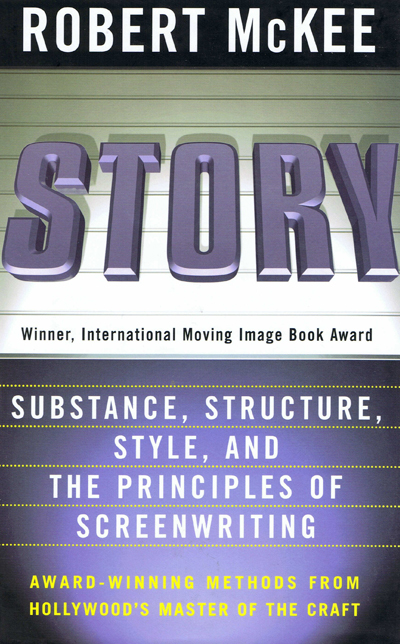 Robert McKee’s screenwriting workshops have earned him an international reputation for inspiring novices, refining works in progress and putting major screenwriting careers back on track. Quincy Jones, Diane Keaton, Gloria Steinem, Julia Roberts, John Cleese and David Bowie are just a few of his celebrity alumni. Writers, producers, development executives and agents all flock to his lecture series, praising it as a mesmerizing and intense learning experience.
Robert McKee’s screenwriting workshops have earned him an international reputation for inspiring novices, refining works in progress and putting major screenwriting careers back on track. Quincy Jones, Diane Keaton, Gloria Steinem, Julia Roberts, John Cleese and David Bowie are just a few of his celebrity alumni. Writers, producers, development executives and agents all flock to his lecture series, praising it as a mesmerizing and intense learning experience.
In Story, McKee expands on the concepts he teaches in his $450 seminars (considered a must by industry insiders), providing readers with the most comprehensive, integrated explanation of the craft of writing for the screen. No one better understands how all the elements of a screenplay fit together, and no one is better qualified to explain the “magic” of story construction and the relationship between structure and character than Robert McKee.
“Story was one of the many books that I read before I wrote Eragon that helped me understand how to construct plots and create characters. Though it’s is intended for screenwriters, I found McKee’s principles and advice invaluable for structuring a novel.”
~ Christopher Paolini

